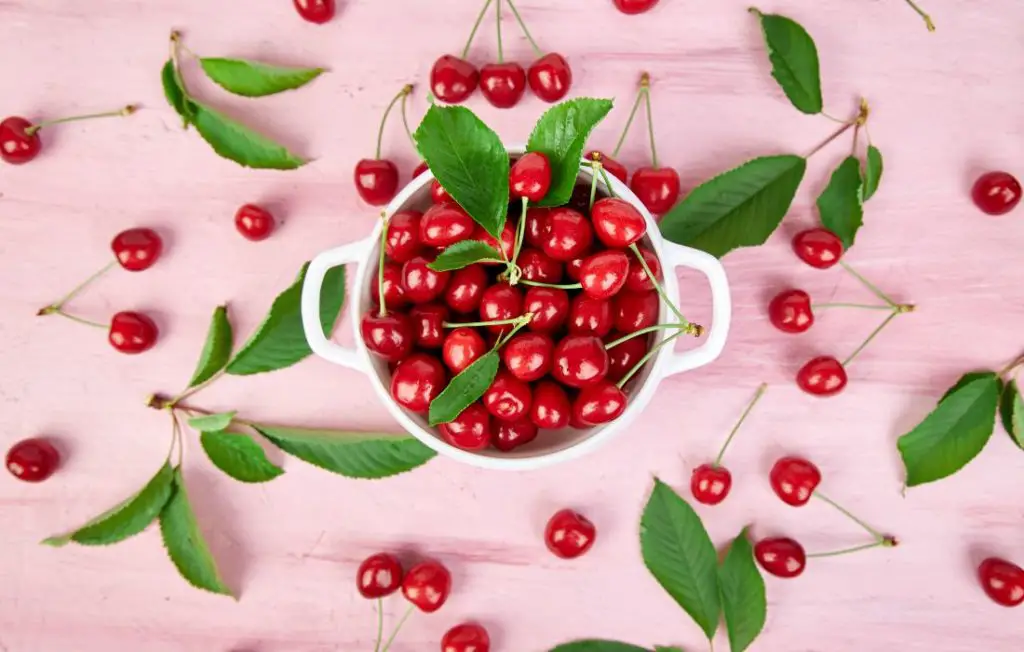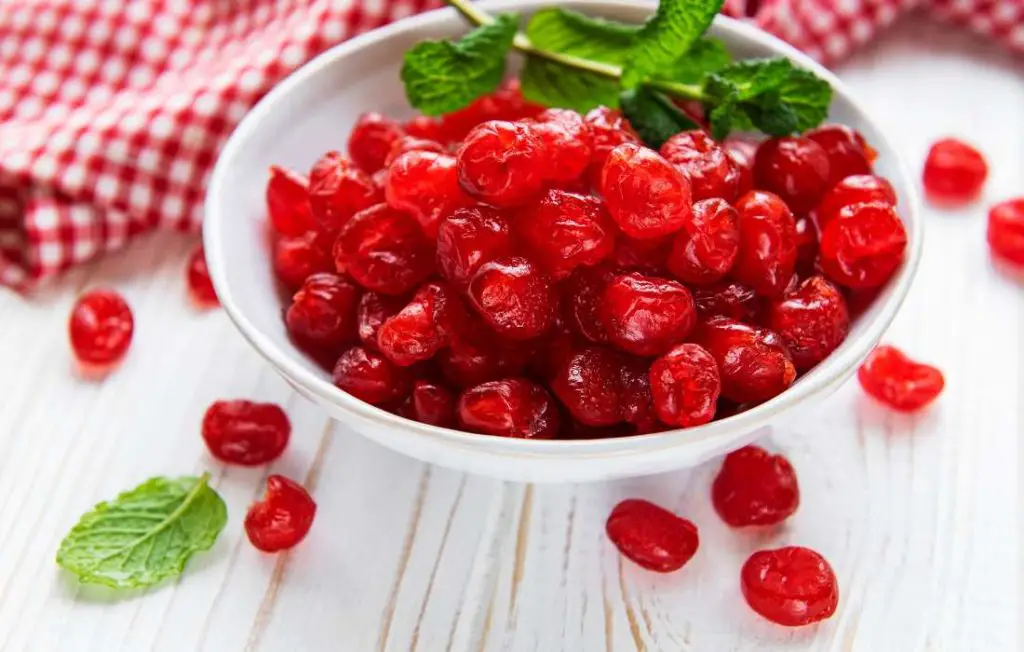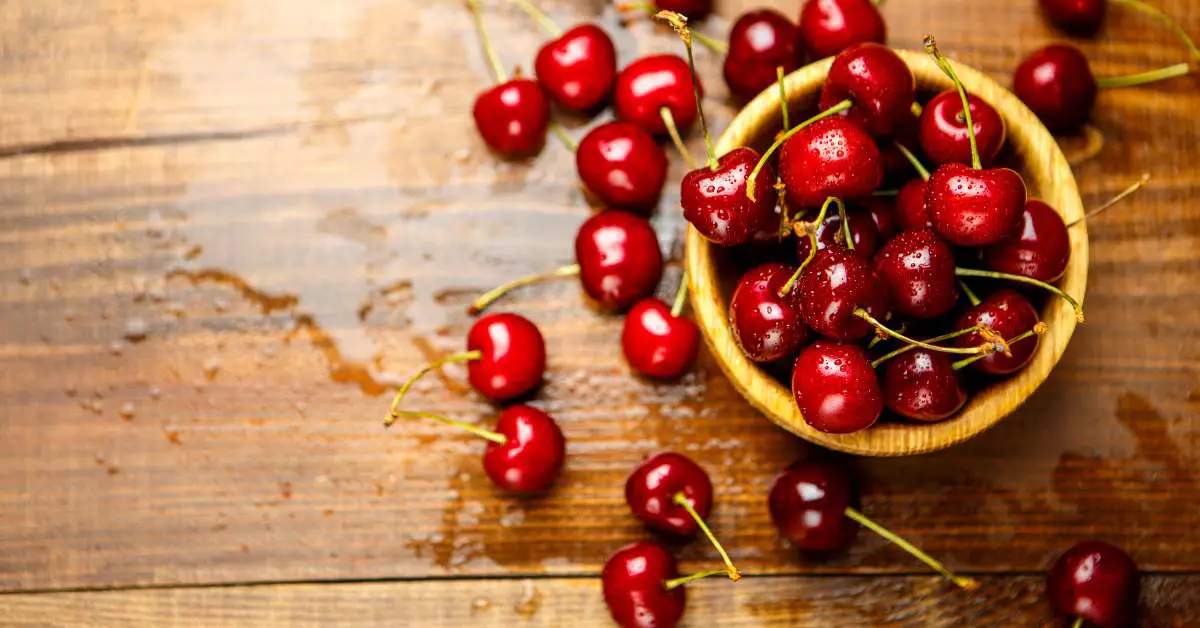Are cherries low histamine? It’s a common question folks have when it comes to what they can munch on with histamine intolerance. Let’s dig a little deeper and get a better idea of whether this deep red and delightful, sweet fruit contains histamine or causes mast cells to liberate histamine.
Cherries are known for their sweet and tangy taste, but what about that histamine buzz? It’s something you don’t want if you have histamine intolerance. But first, a quick review.
Histamine is a chemical that plays a role in your body’s immune response. If you have too much histamine in your system and can’t break it down efficiently, it can build up and trigger histamine intolerance symptoms.
The symptoms of histamine intolerance are wide-ranging and may affect your digestive tract, your lungs, and even your brain, as some people experience headaches, anxiety, or brain fog.
The way you limit the amount of histamine your body builds up is by avoiding foods that contain histamine and foods that trigger mast cells, a type of immune cell, to release histamine.
Lifestyle also plays a role. For example, stress can increase your body’s histamine burden. So, practicing a healthy lifestyle in all areas of your life should be a top priority.
Are There Histamine in Cherries?
If you love the natural sweetness of cherries, there’s good news. Cherries are not a high-histamine fruit. However, as cherries mature, histamine-producing bacteria build up too. This can increase the amount of histamine in cherries. So, you don’t want to let cherries ripen too much before eating them.
Another concern is whether cherries are a histamine liberator. Fortunately, there’s little evidence that cherries cause mast cells to release histamine. In addition, cherries are not known to be high in other biogenic amines (4) that can cause sensitivity reactions in some people.

Are Cherries Beneficial for Histamine Intolerance?
Before delving into whether cherries are beneficial if you have histamine intolerance, you should know that cherries come in two main varieties – sweet cherries and tart cherries.
First up are sweet cherries. They’re the ones you see most commonly in the produce department of grocery stores, with their luscious red or yellow hues, tempting you to take a bite. Many people enjoy eating them right out of the bag or adding some pizzazz to salads and desserts.
Then there are tart cherries, also known as Montmorency cherries. Now, these little guys pack a punch! They’re on the tangy side (hence their name) with a bit of zing that wakes up your taste buds. People add them to cherry pies and other baked goods for an extra kick of flavor.
Both types of cherries are usually low in the histamine department. However, tart cherries may be a better choice if you have histamine intolerance. Tart cherries stand out in terms of their anti-inflammatory activity.
Both types of cherries contain anti-inflammatory compounds called anthocyanins, but tart cherries top the charts in terms of other anti-inflammatory compounds, including quercetin and ellagic acid.
Plus, tart cherries contain melatonin, a hormone that helps regulate your sleep-wake cycle and has strong antioxidant activity.
A study found that when participants drank tart cherry juice for 7 days, the melatonin level in their urine increased. (3) Although all cherries contain melatonin, tart cherries have more than sweet cherries.
Plus, a small study showed that tart cherry juice reduces inflammatory markers and uric acid levels, making it potentially beneficial for inflammatory diseases, including gout. (2)
Are Frozen Cherries Low Histamine?
These days, you can buy frozen cherries at many supermarkets in the frozen food section. You might wonder whether frozen cherries are low histamine and safe to eat if you have histamine intolerance. Yes, frozen cherries, like their fresh counterparts, contain little or no histamine or other biogenic amines.
If you’re worried about the histamine content of cherries, buying frozen cherries offers some advantages. If they’re frozen, they won’t accumulate histamine-producing bacteria that could increase their histamine content.

Are Dried Cherries Safe If You Have Histamine Intolerance?
The one type of cherry you should think twice about adding to your shopping cart is dried cherries. They contain sulfur dioxide or sulfites that can trigger sensitivity reactions in some people. If you have histamine intolerance, it’s best to avoid dried fruits in general and stick to fresh or frozen.
Determine Your Own Tolerance to Cherries
As with most foods, tolerance to cherries varies. Some people who have birch pollen allergy also react to cherries. So, introduce small quantities of cherry into your diet and track your symptoms to see how you respond. As always, keep a food and symptom diary, so you can correlate symptoms with the foods you eat.
Key Takeaways:
- Cherries are generally low in histamine and are a safe option if you have histamine intolerance.
- As cherries mature, histamine-producing bacteria can build up, so it’s best not to let them ripen too much before eating them or adding them to recipes.
- Sweet and tart cherries contain anti-inflammatory benefits. However, tart cherries contain more of these substances. Tart cherries also contain melatonin, an antioxidant that helps regulate your sleep-wake cycle.
- Frozen cherries are a good option since freezing keeps histamine-producing bacteria from gaining a foothold.
- Dried cherries contain sulfur dioxide or sulfites that can trigger sensitivity reactions in some people with histamine intolerance.
- Keep a food diary to see how your body responds to cherries.
Cherries and Histamine Intolerance
Are cherries low histamine? No, they don’t contain significant quantities of histamine or other biogenic amines and they’re not histamine liberators. Cherries, especially tart cherries, contain anti-inflammatory compounds that may be beneficial for histamine intolerance symptoms. So, enjoy the health and nutritional benefits of cherries! Now, find out whether wine contains histamines.
References:
- Gonçalves AC, Nunes AR, Flores-Félix JD, Alves G, Silva LR. Cherries and Blueberries-Based Beverages: Functional Foods with Antidiabetic and Immune Booster Properties. Molecules. 2022 May 20;27(10):3294. doi: 10.3390/molecules27103294. PMID: 35630771; PMCID: PMC9145489. https://www.ncbi.nlm.nih.gov/pmc/articles/PMC9145489/
- Volume25, IssueS1. Experimental Biology 2011 Meeting Abstracts. April 2011. Pages 339.2-339.2
- Howatson G, Bell PG, Tallent J, Middleton B, McHugh MP, Ellis J. Effect of tart cherry juice (Prunus cerasus) on melatonin levels and enhanced sleep quality. Eur J Nutr. 2012 Dec;51(8):909-16. doi: 10.1007/s00394-011-0263-7. Epub 2011 Oct 30. PMID: 22038497. https://pubmed.ncbi.nlm.nih.gov/22038497/
- Doeun D, Davaatseren M, Chung MS. Biogenic amines in foods. Food Sci Biotechnol. 2017 Dec 13;26(6):1463-1474. doi: 10.1007/s10068-017-0239-3. PMID: 30263683; PMCID: PMC6049710. https://pubmed.ncbi.nlm.nih.gov/30263683/
.

